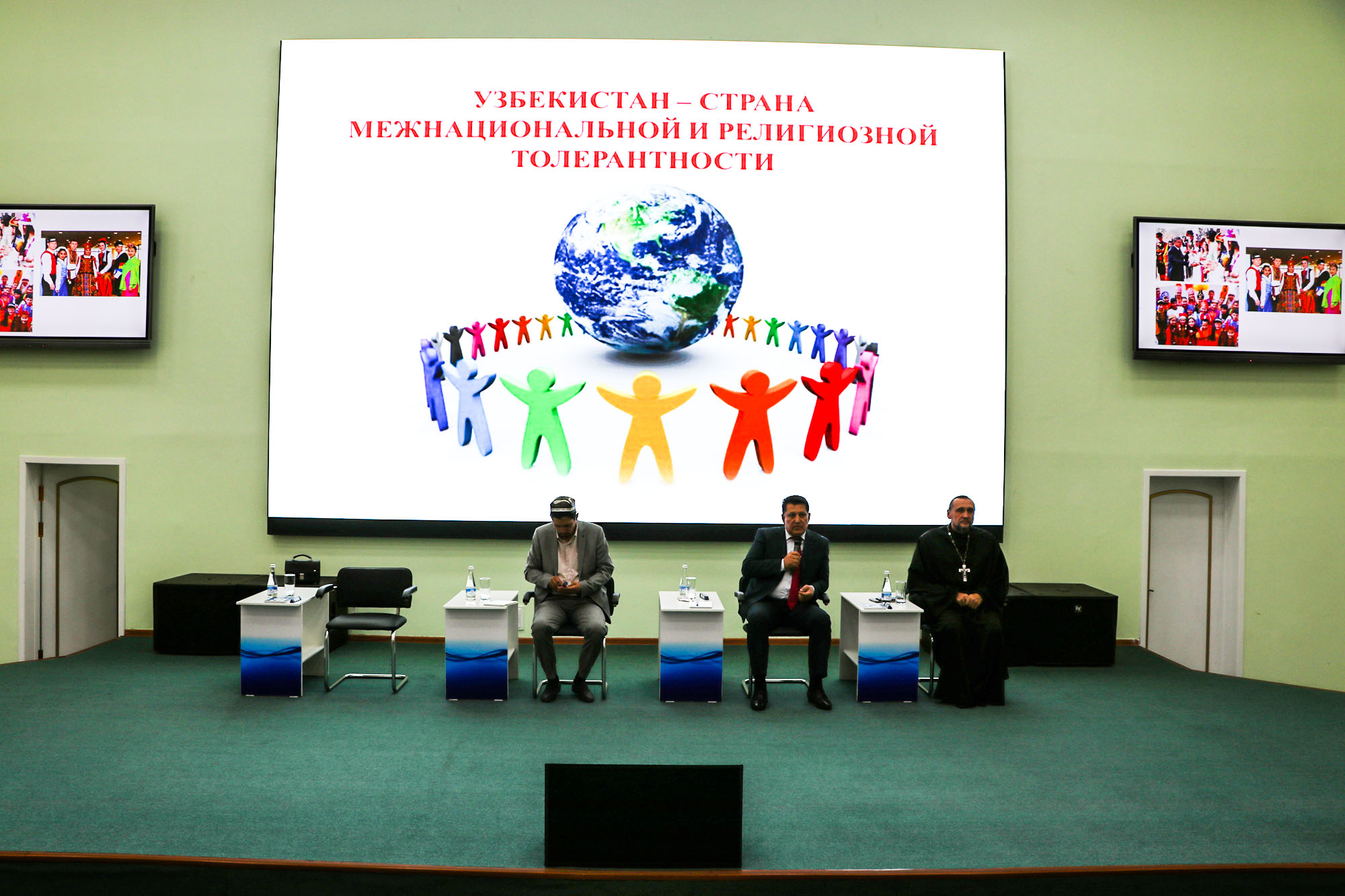“Uzbekistan is the country of interethnic and religious tolerance”

On October 8, 2019 the Branch of the Russian State University of Oil and Gas (NRU) named after I.M. Gubkin in Tashkent held an educational event “Uzbekistan is the country of interethnic and religious tolerance”. The event was attended by leaders of religious agencies, scientists and specialists: Alimardanov Tulkun Turdievich, Doctor of Political Sciences of the International Islamic Academy of Uzbekistan, Archpriest Sergiy Statsenko, Vice-Rector on academic affairs at the Tashkent Orthodox Theological Seminary, and Otajonov Bahrom Ravilyevich, Khatib of the “Dustjoanboy” Mosque in Tashkent.
Doctor of Sciences of the International Islamic Academy of Uzbekistan T. Alimardanov attracted the attention of the participants to the unanimous adoption of the resolution “Education and Religious Tolerance” put forward at the 72nd session of the UN General Assembly in September 2017 in New York by the President of the Republic of Uzbekistan Shavkat Miromonovich Mirziyoyev. The main aim of the proposed resolution is to ensure universal access to education, elimination of illiteracy and ignorance. The document is designed to promote establishment of tolerance and mutual respect, ensure religious freedom, protect the rights of believers, and prevent their discrimination”.
The imam-khatib of the Dustjonboy mosque in Almazar district of the capital, Bahrom Ravilievich Otajonov, concluded that it was important to study the true nature of Islam, with the growing threats of international religious extremism and terrorism. In the conclusion of the speech, he noted that the political identity of our citizens wass growing and gaining strength, their social activity is increasing as well.

Vice-rector on academic affair of the Tashkent Orthodox Theological Seminary, Archpriest Sergiy Statsenko, expressed appreciation for the attention and support to the activities of the Russian Orthodox Church in Uzbekistan, the conditions created for a full spiritual life of believers. Archpriest Sergius clarified that the word “bagrykengllik” is by no means based on the Latin tracing-paper of the term “tolerance”. In its common sense, tolerance is perceived as the ability to tolerate the presence of people with foreign views without aggression. In the Uzbek reading, tolerance is designated as the breadth of the soul which already speaks of the essence of our traditions of cohabitation of peoples with many national cultures and religions.
The meeting, undoubtedly, caused great interest among those present and it should be noted that the dialogue of tolerance in Uzbekistan was successful.

